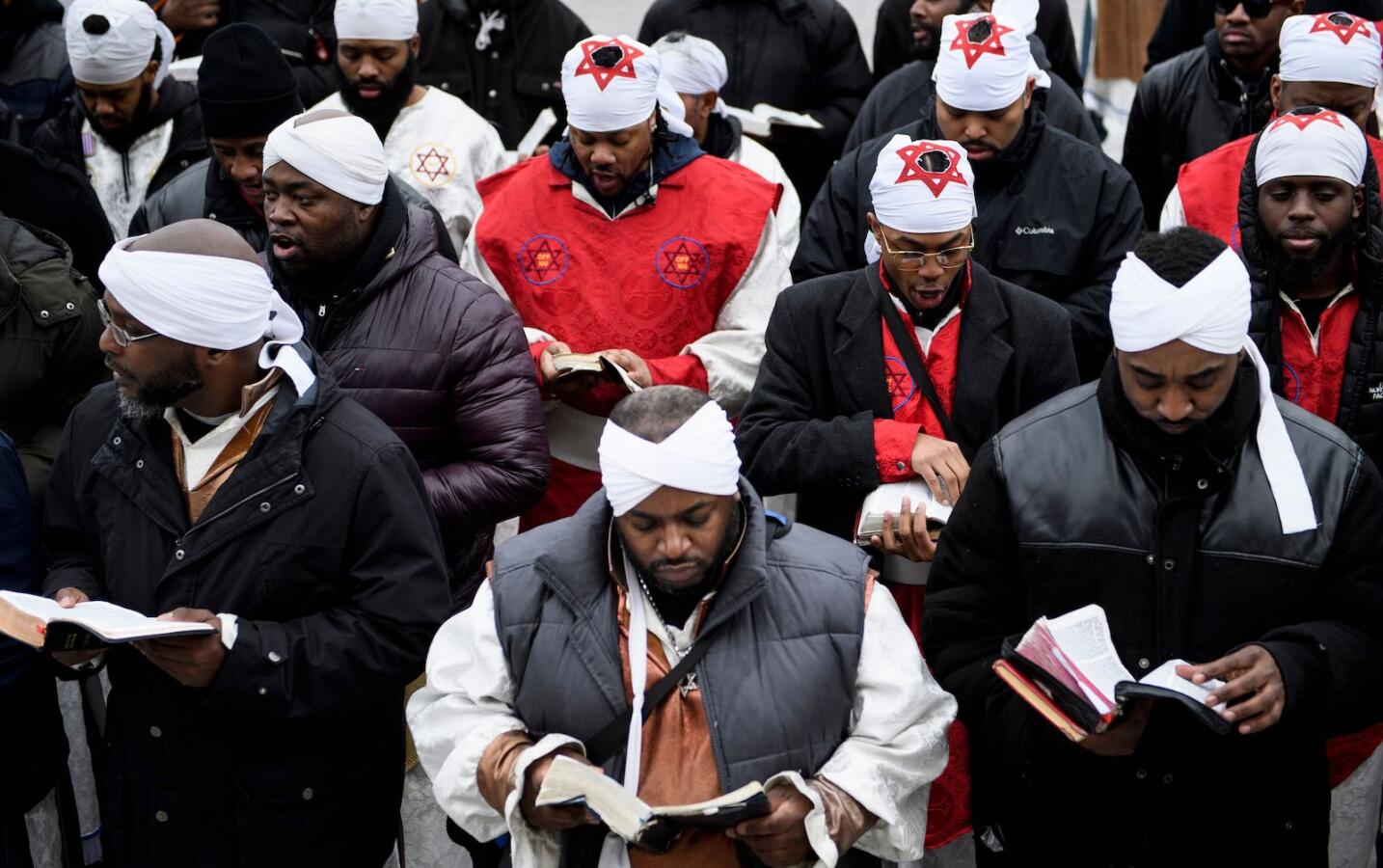During these weeks when autumn turns to winter, the weekly Torah portions relate the story of Jewish genealogy, from Abraham and Sarah to Isaac to Jacob and Esau, twin brothers who part ways leaving Jacob and his sons ostensibly as the exclusive inheritors of the Abrahamic message. It is perhaps serendipitous that we find ourselves at this point in the Torah cycle amid a contemporary controversy over a film claiming that Black Africans are the true Jews and white Jews are imposters.
Setting aside for the moment the disturbing antisemitic tropes deployed in the film, and the fact that there is no shortage of Black Jews that fully and rightfully identify with the Jewish community, there is something here that should attract our attention: How do we who call ourselves Jews authenticate our own Jewishness?
Authenticity is itself a complex phenomenon. James Charme, in his new book Authentically Jewish: Identity, Culture, and the Struggle for Recognition, examines two models among many: historical authenticity and expressive authenticity. The former posits an objective, unchanging core to Jewish identity, while the latter suggests that authentic Jewishness is subjective, manifested in the various ways Jews express themselves as Jews. Expressive authenticity, I would suggest, is a better barometer for defining Judaism today.
Black Israelites and Black Hebrews generally claim that the ancient Israelites were African tribes that inhabited the land of Canaan and they are their mythical descendants. I say “mythical” because the Jewish claim that we are descendants of tribes that lived on the border of Africa and Asia some 4,000 years ago is also mythic. Can we really believe that a diverse modern community, which has been dispersed for more than two millennia and has come to look very much like the peoples among whom they reside, are all direct descendants of a single group of ancient tribes? In other words, can we really still buy the myth of the historical authenticity of contemporary Jewish identity?

Help us keep Jewish knowledge accessible to millions of people around the world.
Your donation to My Jewish Learning fuels endless journeys of Jewish discovery. With your help, My Jewish Learning can continue to provide nonstop opportunities for learning, connection and growth.
Much has been made of recent efforts to prove historical Jewish authenticity through genetics, but these have had mixed results. And why should we think otherwise? Jews married and had children with non-Jews throughout history. And if we embrace expressive authenticity as our yardstick, this is beside the point. What is powerful about what we are reading now in Genesis is the story of ancestry — not the genetics of ancestry. So why are we Jews so disturbed when Black Israelites tell a different version of our biblical story that is rooted in their blackness?
The reason, of course, is that their claim is not neutral. It excludes normative Jews, which some argue is itself antisemitic. But in some sense, pointing this out is a kind of mimicry of the claim it seeks to refute. They can’t be real Israelites because only we are true descendants of Israelites. But the truth of our ancestry isn’t in genetics, but in the way the story we read in Genesis has carried us through history and continues to do so. What makes us “real” Jews is that we embody expressive authenticity by carrying the myth of Jewishness. Esau was just as genetically tied to Abraham as Jacob. The difference is that Jacob became the bearer of the Jewish story and Esau abandoned it
What if the standoff between Black Hebrews and Jews could move beyond a zero-sum game and entertain the notion that the Jewish myth has various refractions — that, as philosopher Jonathan Webber has said, “there are multiple authentic Judaisms.” Yes, the ancient Israelites may indeed have been dark-skinned and thus Jewishness can be an iteration of blackness. And yes, today’s Jews (white and not) have carried that story and made it their own, whatever their genetic makeup may be. Why should that story be exclusive to one group? If we acknowledge the myth of our own origins, would that create space for the myth of their origins? Can we both carry a version of that story, each refracting our Israelite ancestry in a different manner?
In Radical Judaism, Rabbi Arthur Green offers a framework that may be useful here. Green distinguishes between “Israel” and “Jews.” Israel constitutes any group that views itself as God seekers in the biblical sense — that is, any group that aspires to embody the biblical story of the sons of Jacob regarding one God. “Jew” refers to a specific group who came to be identified as the primary bearers of that message. Jews and Israelites can share a tradition that becomes manifest in a variety of ways. Spiritual ancestry is not biology.
Interestingly, Black Hebrews and Israelites do not use the term “Jew.” Black Jews are those who identify with the Jewish community. So why not create space for Black Hebrews and Israelites to be part of the larger orbit of biblical God seekers and let the Jews welcome them into the tent of Abrahamic monotheism? Once we Jews confront the mythic origins of our own past — once we stop appealing to historical authenticity to prove that which cannot be proven — it is much easier to be sensitive to the mythic origins of others who claim the mantle of part of our identity. (The same could be said, by the way, about Jewish attitudes towards Samaritans and Karaites.)
For this to work, both sides would need to abandon the zero-sum game which necessitates that Jewishness, or Israelness, or Hebrewness, can only be held by one group. Both groups would need to abandon historical authenticity. But if white Jews can acknowledge that it’s reasonable to posit that their ancestors may have been dark-skinned, perhaps Black Hebrews can acknowledge that even if most American Jews today are now white, we have carried this story through history. We embody an expressive authenticity that is anything but fake.
The recent controversy provided an opportunity to think through some of this. But instead, both sides became enmeshed in charges of antisemitism and anti-antisemitism that produced nothing but animus, anxiety and misunderstanding. As we read the portions of Genesis that show us how a nomadic tribe took form in the desert, perhaps we can confront our own myth of origins and, in so doing, become more open to the myths — and expressive authenticities — of others.
This article initially appeared in My Jewish Learning’s Shabbat newsletter Recharge on Dec. 10, 2022. To sign up to receive Recharge each week in your inbox, click here.



